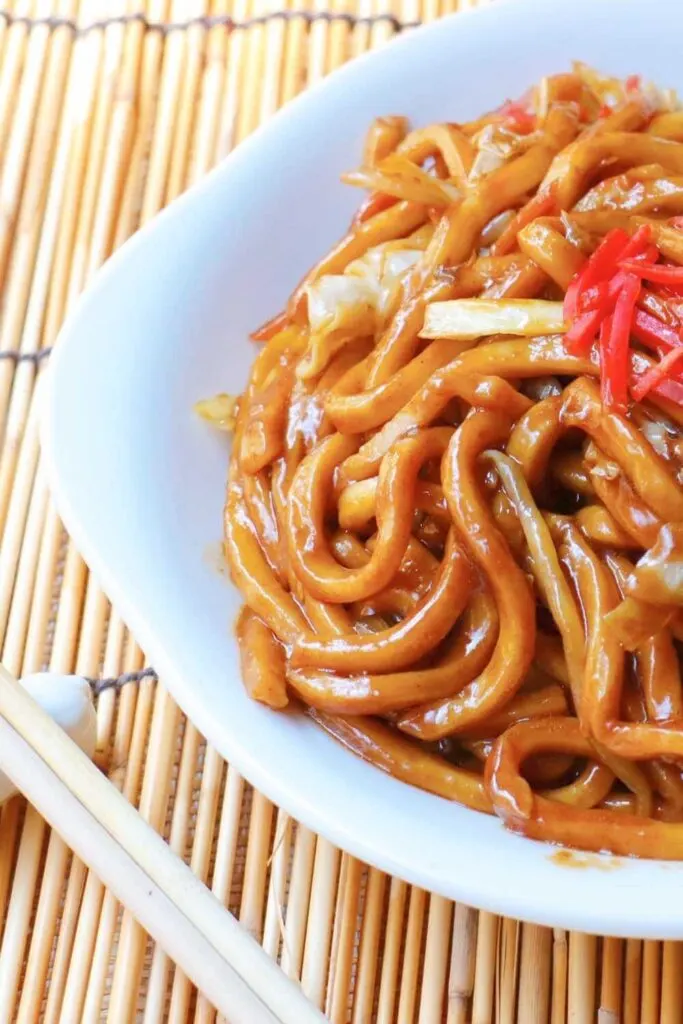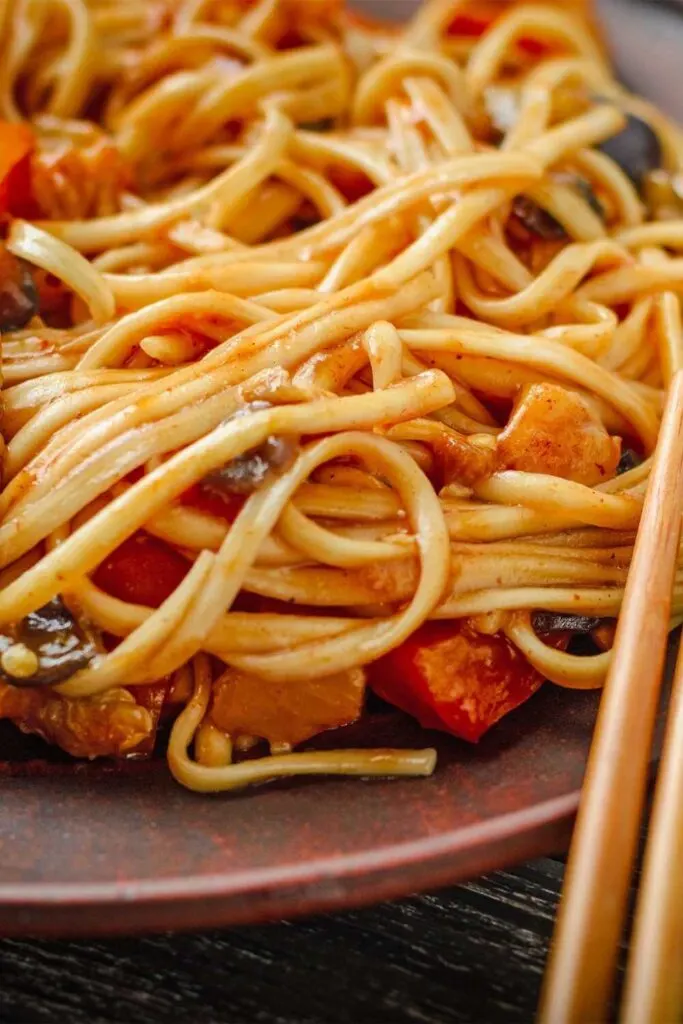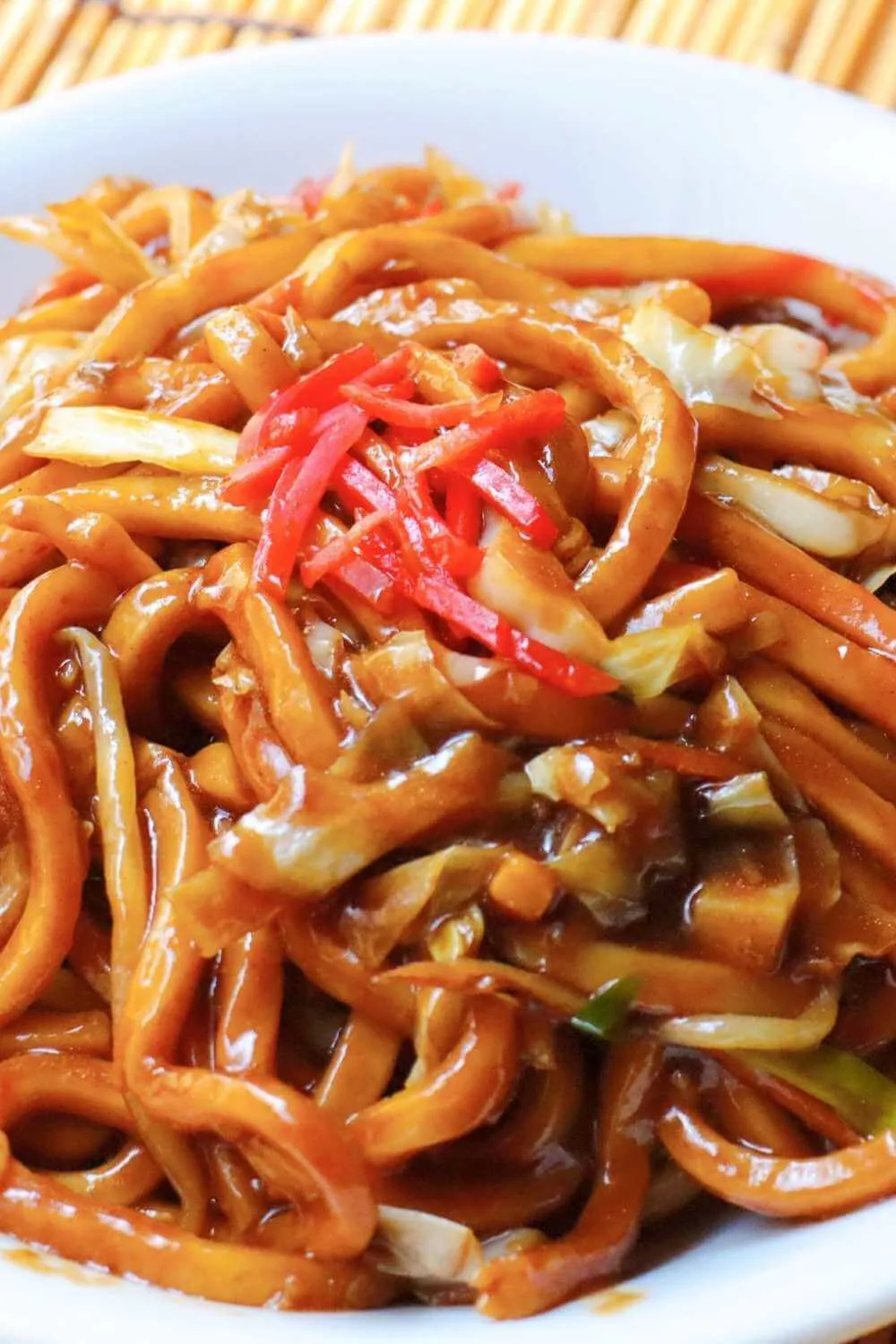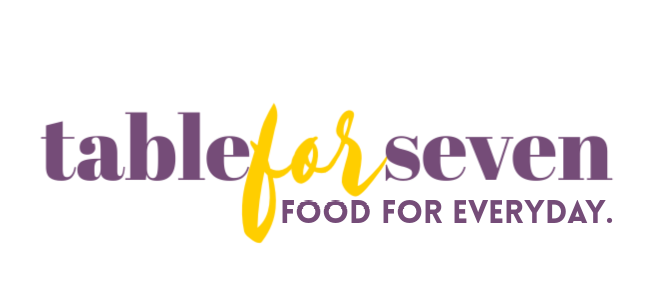Let’s learn How To Cook Costco Udon Noodles and make Yaki Udon, which is a simple recipe for Japanese stir-fried noodles that can be ready in just 20 minutes! Fried udon noodles have a sour sauce made of yaki udon noodles mixed in with them before serving.
My favorite weeknight meal is yaki Costco Udon Noodles because it is so quick and easy to make! Within five minutes, the noodles are ready for stir-frying. With stir-fried udon noodles, you can add any vegetables and protein you want since they’re so versatile.

What is Yaki Udon?
Yaki udon is a Japanese stir-fried noodle dish with a variety of vegetables and proteins. Stir-fried in a savory sauce made of soy sauce and mirin.
The noodles in this are different from those in yakisoba. Yakisoba is also a stir-fried Japanese noodle dish, but the noodles are much thinner. However, these are not to be confused with soba noodles, which are actually made from buckwheat flour.
What Are Yaki Costco Udon Noodles Made Of?
Yaki Costco Udon Noodles are made with Japanese udon noodles. A thick, chewy wheat noodle made with wheat flour, water, and salt. However, it isn’t gluten-free like the rice noodles that you often find in stir-fries.
Udon noodles are vegan and dairy-free, but always check the ingredients, as different brands might have different additives.
Is Yaki Costco Udon Noodles healthy?
Udon noodles are usually made from wheat flour, water, and salt. Since Yaki Costco Udon Noodles contains an assortment of vegetables and protein, it can be made into a healthy meal with protein, fiber, and carbs.
A good way to use frozen Costco Udon Noodles noodles is to make yaki udon, which is excellent for stir-frying. It is great to have frozen udon noodles on hand for quick meals because they cook quickly and retain the chewy texture of udon noodles depending on how they are prepared.
How To Cook Costco Udon Noodles?
- Add the Costco Udon Noodles to a pot of boiling water after removing them from the package. You can add frozen udon noodles directly to boiling water.
- Gently stir the noodles until they are pliable and separated from one another. This should take one to two minutes as they are pre-cooked, you should avoid overcooking them so that they don’t get too soft.
- Under cold water, rinse and drain your noodles. To keep them from sticking if not used right away, drizzle a little bit of oil on them.
Stir Fry:
- Add the oil to the pan and heat it over high heat.
- Stir fry the meat for 1 minute before adding the rest of the vegetables. Stir fry for 2 to 3 minutes, then add Costco Udon Noodles and sauce. If you’d like, add less sauce.
- Stir fry for about 3 minutes or until well combined. Serve right away.
Note: You can either use the ingredients that come with the packaging of your Costco Udon Noodles or follow this recipe and add a few extra ingredients to it or maybe just substitute them.
What To Serve With Costco Udon Noodles?
How And Why To Use Frozen Costco Udon Noodles?
When using frozen Costco Udon Noodles, you keep the noodles from becoming mushy and overcooked and you get that chewy texture they’re known for.
- Put your (frozen or unfrozen) Costco Udon Noodles into rapidly boiling water.
- As soon as the udon noodles are in the boiling water, the temperature will decrease and the water will stop boiling. This is a good thing because it prevents them from overcooking, and the water is just hot enough to separate the noodles. Costco Udon Noodles should have a chewy yet soft texture.
- Gently stir the noodles until they are separated and flexible. The process should take 1 – 2 minutes.
Overcooking your noodles will make them mushy and too soft since they’re already precooked in the packet. Be careful not to tear the noodles when you separate them; just let them separate naturally and give them a gentle stir.
As soon as the noodles separate and become pliable, remove them from the hot water and rinse them under cold water.

How to Separate Costco Udon Noodles & Prevent Clumping?
To prevent your Costco Udon Noodles from sticking together, drizzle a little oil on them if you are not planning on using them right away. Separating the noodles will prevent them from drying out and clumping together.
How To Store Costco Udon Noodles?
Any leftover Costco Yaki Udon Noodles can be stored in the refrigerator for up to four days in an airtight container. I don’t recommend freezing the noodles once they are made because this recipe doesn’t freeze well.
Costco Udon Noodles Nutrition Facts
Amount Per Serving
- Calories 370
- Total Fat 6g
- Saturated Fat 0g
- Cholesterol 0mg
- Sodium 820mg
- Potassium 457mg
- Total Carbohydrate 72g
- Dietary Fiber 3g
- Sugars 9g
- Protein 7g
- Calcium 3%
- Iron 3%
Nutrition Facts Source: Source

How To Cook Costco Udon Noodles
Description
Let’s learn How To Cook Costco Udon Noodles and make Yaki Udon, which is a simple recipe for Japanese stir-fried noodles that can be ready in just 20 minutes! Fried udon noodles have a sour sauce made of yaki udon noodles mixed in with them before serving.
Ingredients
Instructions
- Add the Costco Udon Noodles to a pot of boiling water after removing them from the package. You can add frozen udon noodles directly to boiling water.
- Gently stir the noodles until they are pliable and separated from one another. This should take one to two minutes as they are pre-cooked, you should avoid overcooking them so that they don’t get too soft.
- Under cold water, rinse and drain your noodles. To keep them from sticking if not used right away, drizzle a little bit of oil on them.
- Add the oil to the pan and heat it over high heat.
- Stir fry the meat for 1 minute before adding the rest of the vegetables. Stir fry for 2 to 3 minutes, then add Costco Udon Noodles and sauce. If you’d like, add less sauce.
- Stir fry for about 3 minutes or until well combined. Serve right away.
Stir Fry:
Notes
- Note: You can either use the ingredients that come with the packaging of your Costco Udon Noodles, follow this recipe and add a few extra ingredients to it, or maybe just substitute them.
Servings 2
- Amount Per Serving
- Calories 370
- % Daily Value *
- Total Fat 6g10%
- Saturated Fat 0g
- Cholesterol 0mg
- Sodium 820mg35%
- Potassium 457mg14%
- Total Carbohydrate 72g24%
- Dietary Fiber 3g12%
- Sugars 9g
- Protein 7g15%
- Calcium 3 mg
- Iron 3 mg
* Percent Daily Values are based on a 2,000 calorie diet. Your daily value may be higher or lower depending on your calorie needs.

